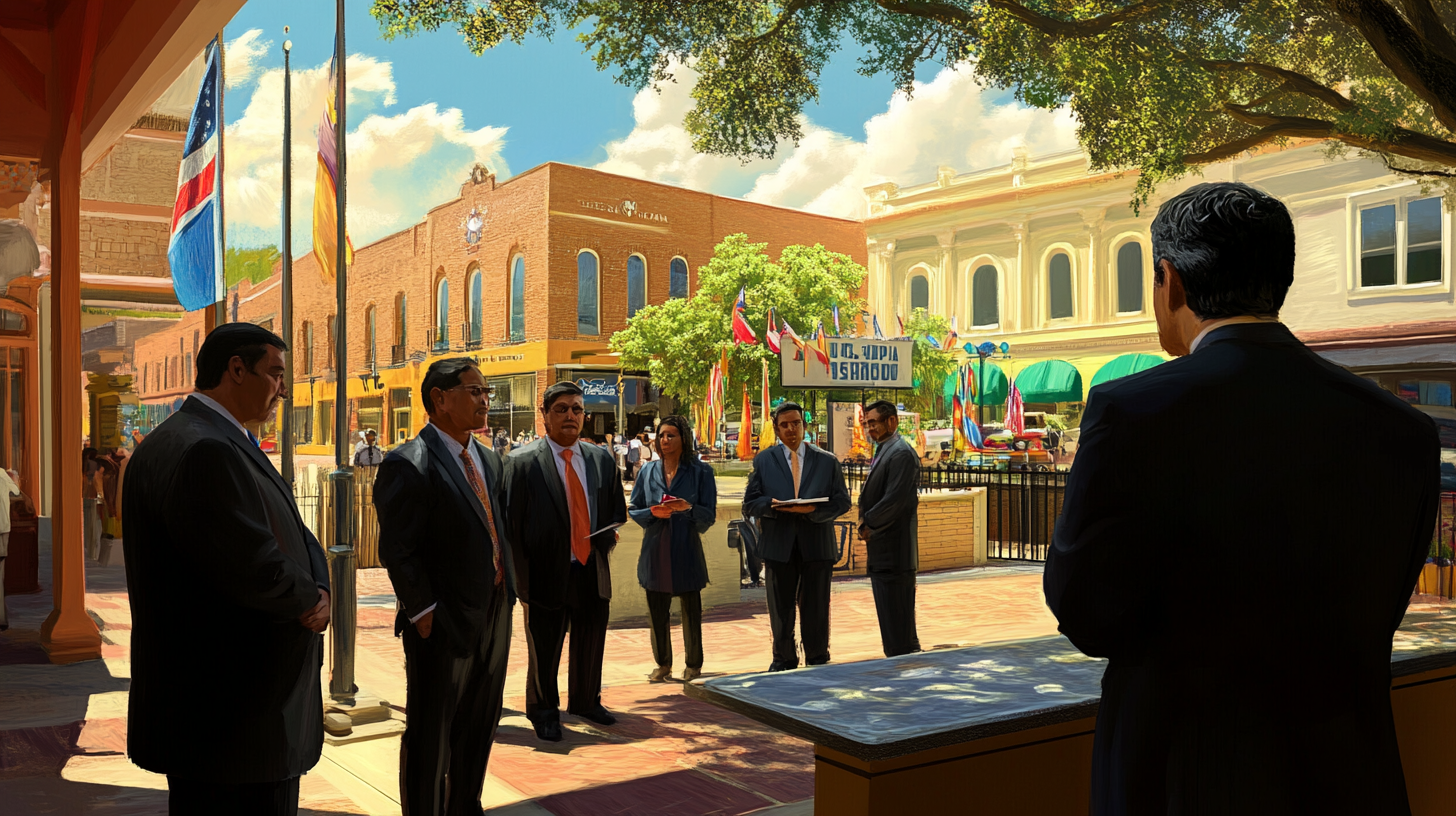‘Harboring’ Charge Dismissed: A Significant Turn in Federal Ropa Usada Case
A federal judge in McAllen, Texas, has dismissed a serious felony charge against Rolando Martinez, a local businessman, in a case that has become a focal point of community interest in the Rio Grande Valley. Martinez, who faced accusations of harboring undocumented individuals working at his business, America’s Best Clothing, saw this charge overturned due to insufficient evidence.
Court’s Rationale Behind the Dismissal
U.S. Magistrate Judge Nadia S. Medrano ruled the case lacked substantial evidence to sustain the harboring charge. Key to this decision was the status of one individual, Gilberto Arredondo Alvarado, an employee at America’s Best Clothing, who had filed a pending asylum application. This application legally permitted him a temporary stay in the U.S. for the duration of his immigration proceedings. During the hearing, Judge Medrano stated, “I will not find probable cause,” aligning with the defense’s argument, which emphasized that employment without more does not equate to harboring.
Legal Landscape: Unlawful Employment Misdemeanor Persists
While the harboring charge was dismissed, Martinez still faces a misdemeanor charge of unlawful employment for hiring individuals not authorized to work in the United States. His lawyer, Raul A. Acevedo Jr., maintained that mere employment does not meet the threshold for harboring. This nuanced distinction is significant as it reflects ongoing legal debates centered on immigration enforcement in regions like South Texas.
Accompanying charges of money laundering and smuggling have been brought against other individuals connected to Leo’s Clothing, a business associated with Martinez. This underscores the broader legal complexities intertwining commercial practices and immigration laws at the U.S.-Mexico border.
The Community Context and Reaction
The dismissal of the harboring charge is greeted with mixed reactions from the local community in the Rio Grande Valley. Some Valley residents have expressed relief, interpreting the decision as a potential easing of stringent immigration-related prosecutions in an area profoundly influenced by cross-border dynamics. Others remain cautiously observant of the misdemeanor charge still facing Martinez, recognizing the concurrent need to uphold labor laws.
Community leader Alejandro Cardenas commented, “While it’s important to maintain legal processes, we must consider the socio-economic realities of business operations near the border. Many local businesses are integral to our community, and their treatment should reflect this understanding.”
Economic and Social Implications
Located near Dr. Alejo Salinas Jr. Elementary School in Hidalgo, both America’s Best Clothing and Leo’s Clothing symbolize the economic interactivity typical of border regions. As such, they reflect broader employment trends and the critical role businesses play in the vitality of communities in the RGV.
The potential repercussions of these legal proceedings are multifaceted. For one, they may shape regulatory practices affecting how local businesses engage with immigration laws. On a broader scale, this case serves as a reminder of the economic disparities often at play in the Valley, where access to legal guidance and immigration status can significantly impact livelihoods.
Connecting the Dots: Historical Precedents and Ongoing Discussions
The arithmetic of immigration and commerce is hardly new to the region. The Valley has, for years, been a conduit for discussions surrounding employment rights, immigration enforcement, and economic sustainability. Drawing parallels to previous legal battles, such as those involving Texas’s sanctuary cities policies, this case forms part of an evolving narrative that’s deeply woven into the fabric of South Texas life.
As immigration policies continue to fluctuate, the outcome of this case could influence future legislative considerations and enforcement strategies in the region. Policy analyst Teresa Mendoza remarked, “Cases like these invite essential dialogue to bridge gaps between immigration policy and economic realities, ensuring fair practices prevail.”
Looking Ahead: Potential Outcomes and Community Resources
Future implications for Martinez and his businesses will likely depend on how the case proceeds concerning the remaining unlawful employment charge. This ongoing legal situation implores local businesses to re-evaluate employment practices in light of current immigration frameworks to ensure compliance while fostering community growth.
Valley residents seeking guidance or dealing with similar situations might consider resources offered by local legal aid organizations. Additionally, attending community forums or engaging in regional coalitions focusing on labor rights could provide further support and education.
In summation, the dismissal of the harboring charge against Rolando Martinez marks a pivotal moment in the intersection of legal practice and community life in the Rio Grande Valley. This case, while primarily legal, reverberates through the socio-economic narratives that shape Valley residents’ daily experiences, highlighting the complexity of maintaining legal norms amid rich cultural intersections characteristic of South Texas.
For more information on this case or resources available to Valley residents, community members are encouraged to contact local legal advisories or attend scheduled public sessions offered by the county to discuss consequent legal matters further.







